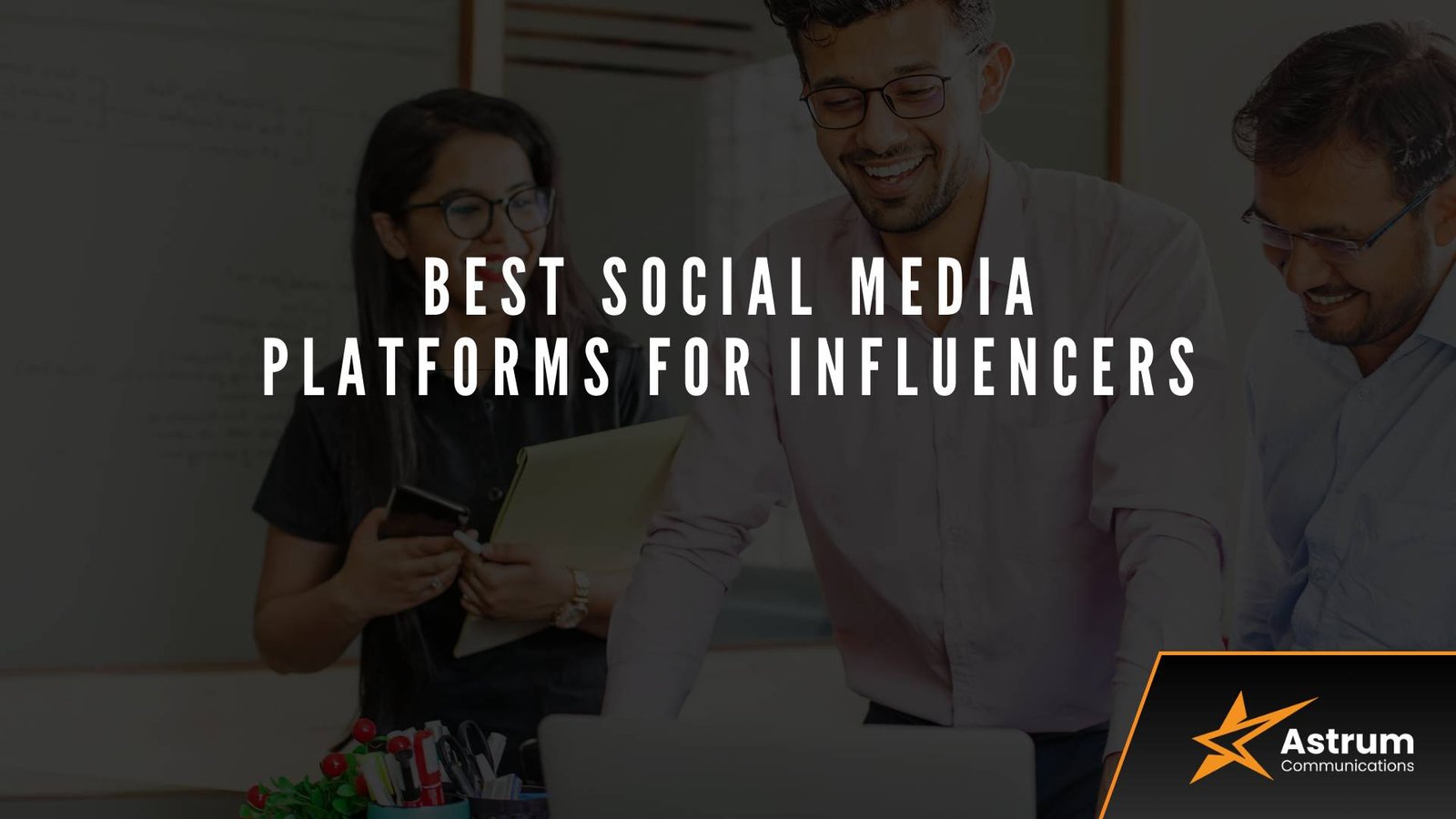Choosing the right social platforms is essential for influencers aiming to build topical authority. Understanding where your audience engages most will enhance your reach and effectiveness, allowing you to establish credibility and connection within your niche. This guide explores the best social media platforms for influencers.
Table of Contents
ToggleInstagram: Visual Content and Influencer Collaborations
Instagram stands out as a premier platform for influencers, primarily due to its emphasis on visual content. With over a billion active users, Instagram allows influencers to showcase their creativity through photos, videos, and Stories, appealing to diverse audiences. The platform’s user-friendly tools, like filters and editing features, enhance visual storytelling, making it ideal for brands seeking to engage their target market.
Collaborations between influencers and brands thrive on Instagram, as the platform supports authentic connections and followers trust the recommendations of those they admire. By using relevant hashtags and engaging with their audience, influencers cultivate topical authority, driving traffic and boosting brand visibility. Overall, Instagram remains a vital space for influencers, facilitating impactful marketing strategies driven by high-quality visual content and genuine partnerships.
YouTube: Long-Form Video and Community Engagement
YouTube stands out as a top platform for influencers, especially for long-form video content. With its vast user base, creators can build deep connections with their audience through engaging storytelling and informative videos. Long-form content allows influencers to explore topics in-depth, enhancing their credibility and position as trusted experts in their niche, which is key to gaining topical authority. Additionally, YouTube fosters community engagement through features like comments and live chats, encouraging discussions and feedback. This interactive environment helps influencers establish stronger relationships with their followers, driving loyalty and increasing visibility. Overall, YouTube’s focus on long-form video and community interaction makes it an essential platform for influencers aiming to strengthen their brand and connect meaningfully with their audience.
TikTok: Short-Form Video and Trending Content
TikTok is a dynamic social media platform focused on short-form videos, allowing users to create, share, and discover engaging content. It has become a hub for trends, where challenges and catchy sounds often dictate what goes viral. For influencers, TikTok offers unique opportunities to connect with audiences through creative storytelling and authentic interactions. The platform’s algorithm promotes diverse content, ensuring even newer creators can gain visibility. With a strong emphasis on trending themes, influencers can build trust and authority within their niche. By participating in viral challenges and utilizing popular hashtags, creators enhance their reach and foster community engagement, making TikTok an essential tool for anyone looking to elevate their online presence.
Twitter: Real-Time Updates and Thought Leadership
Twitter stands out as a vital platform for influencers seeking real-time updates and thought leadership. Its fast-paced environment allows users to share insights and engage in trending conversations instantly. By consistently posting relevant content, influencers can establish themselves as authorities in their niches, enhancing their visibility and credibility. The platform’s use of hashtags and trending topics enables influencers to connect with broader audiences, driving engagement and fostering community. Additionally, real-time interactions with followers and peers help build meaningful relationships, further solidifying their status as thought leaders. With its focus on instant communication and relevant content, Twitter is an essential tool for influencers aiming to expand their reach and influence in a dynamic social media landscape.
LinkedIn: Professional Networking and Industry Expertise
LinkedIn is a leading platform for professional networking and industry expertise, making it an essential tool for influencers. It allows users to showcase their skills, share insights, and connect with professionals across various sectors. By engaging with relevant content and joining industry-specific groups, influencers can establish topical authority, positioning themselves as credible voices in their fields. LinkedIn’s features, such as articles and posts, enable influencers to share knowledge and build a following, enhancing their visibility and reach. Furthermore, optimizing profiles with industry keywords can improve discoverability, making it easier for professionals and brands to connect with influencers who have aligned expertise. In summary, LinkedIn supports influencers in cultivating professional relationships and establishing authority, reinforcing their presence in the competitive social media landscape.
Facebook: Groups and Communities for Niche Audiences
Facebook Groups and Communities provide a unique space for influencers to connect with niche audiences in a structured and meaningful way. These groups act as hubs where individuals with shared interests can engage, share insights, and foster relationships. By participating in or creating groups focused on specific topics, influencers can enhance their authority within that niche, positioning themselves as trusted voices. This targeted engagement not only strengthens community ties but also improves visibility on the platform through entity SEO, as relevant discussions and content can boost search rankings. For influencers, connecting with niche audiences on Facebook can lead to increased brand loyalty and opportunities for collaboration.
Pinterest: Visual Discovery and Lifestyle Influence
Pinterest is a unique visual discovery platform that enables users to find, share, and save ideas related to various interests, from fashion to home decor. With its emphasis on imagery, it serves as a powerful tool for influencers looking to engage audiences through lifestyle content. The platform allows for curated visual storytelling, where pins link directly to websites, driving traffic and encouraging brand interaction. Pinterest’s algorithm prioritizes relevant, high-quality content, rewarding accounts that establish topical authority in their niche. This makes it an essential platform for influencers aiming to build a community and enhance their online presence. By creating visually appealing and informative pins, influencers can effectively connect with their target audience and foster authentic engagement, making Pinterest an integral part of any social media strategy.
Conclusion
In conclusion, Instagram remains a premier platform for influencers, thanks to its visual-centric design and strong community engagement. By focusing on topical authority and building genuine connections, influencers can enhance their brand visibility and authenticity. Collaborations further amplify reach, making it essential to align with like-minded partners. For brands seeking to optimize their influencer strategies, Astrum Communications specializes in digital marketing solutions tailored to elevate your online presence. Let us help you navigate the evolving landscape of social media and achieve your marketing goals.


